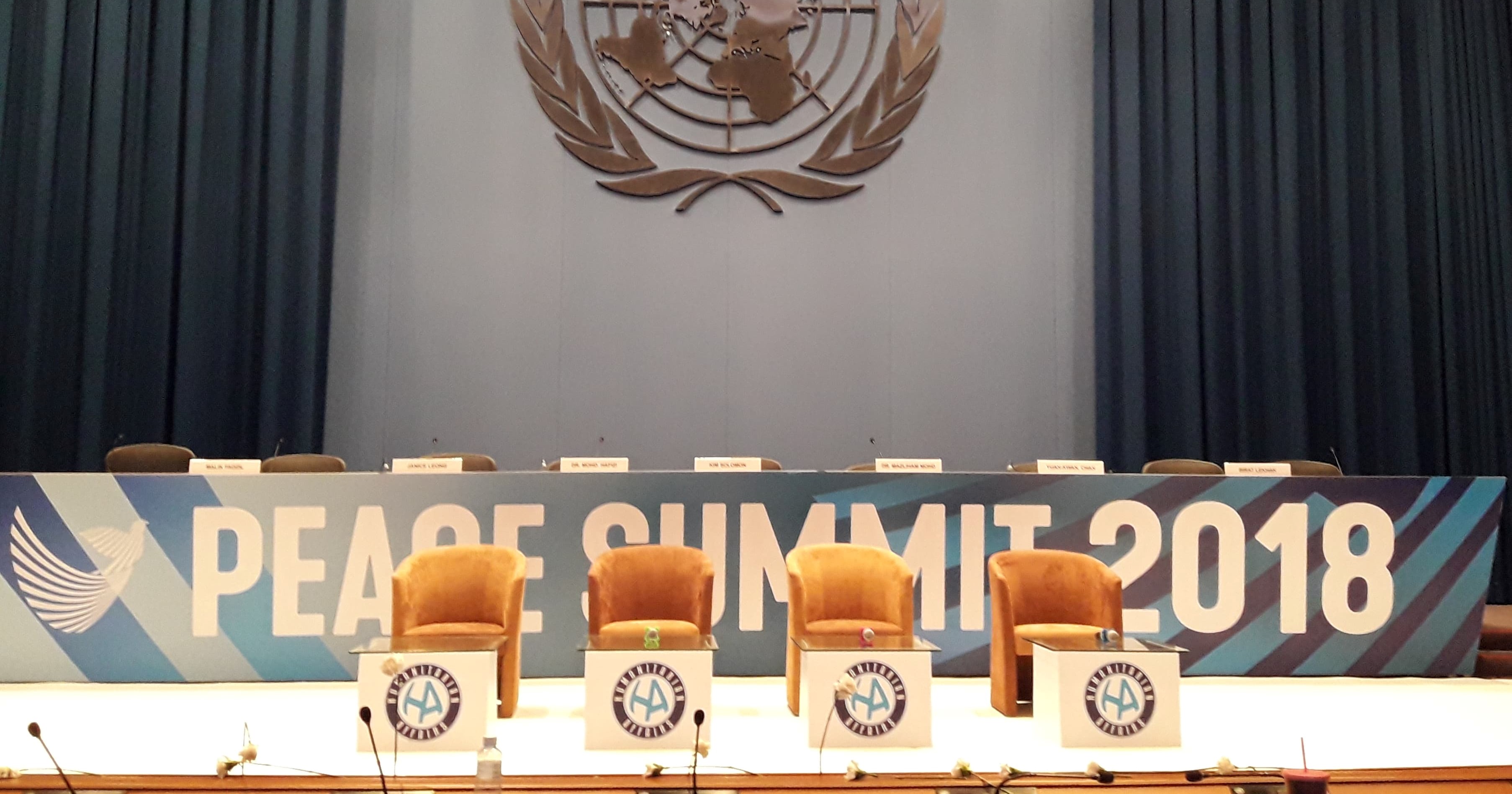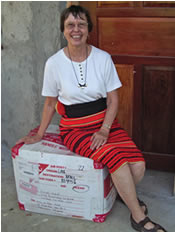By: Thitipong Tankumpuan
In November 2018 I attended the UN Peace Summit of Emerging Leaders in Bangkok, Thailand. The conference’s theme was “together for peace” and it aimed to promote sustainable peace by building up a strong, global network of leadership.
The summit encouraged emerging young leaders to form and share innovative ideas about how to promote peace and justice—which the world needs today. It included a keynote speaker who shared their experience about war and a workshop where my peers and I practiced negotiating.
So how are health and peace related? At first glance they don’t seem to go together, but consider the question carefully. ‘Peace’ can impact health equity in terms of access to health care services and the availability of health resources. It can impact if adequate care is available and applied equitably to different groups of people at an affordable price, and ‘peace’ impacts if the care will be acceptable to the people.
And then there are social determinants of health, which are also related to health equity. The World Health Organization defines social determinants of health as “the conditions in which people are born, grow, work, live, and age, and the wider set of forces and systems shaping the conditions of daily life.” The relationship is complex; not only are there single, individual-level determinant of health, there are also interpersonal and society-level determinants. Managing ‘peace’ requires cooperation among different professions. Therefore, this conference addressed the importance of teamwork. The summit motivated us to change our mindset so we can solve conflicts in the future.
In addition, the World Health Organization has discussed the relationship between peace and health in a new campaign: “Health as a Bridge for Peace.” The campaign urges health care providers to develop a plan for delivering health care in conflict areas. The policy framework is derived from human rights and humanitarian principles as well as medical ethics; it charges health care professionals and stakeholders alike to find the best solutions for health issues that arise in conflict areas.
In conclusion, health care providers are directly confronted with conflict in health and well-being. It’s a delicate issue that we need to consider because peace, human rights, and equitably administered care walk hand in hand.
ABOUT THE AUTHOR: THITIPONG TANKUMPUAN
 Thitipong Tankumpuan, PhD, RN, earned his PhD in Nursing from the Johns Hopkins School of Nursing in 2018. Now he has returned to Thailand to work in faculty position at Mahidol University Faculty of Nursing. His research focuses on social determinants of health and health disparities in low and middle-income countries.
Thitipong Tankumpuan, PhD, RN, earned his PhD in Nursing from the Johns Hopkins School of Nursing in 2018. Now he has returned to Thailand to work in faculty position at Mahidol University Faculty of Nursing. His research focuses on social determinants of health and health disparities in low and middle-income countries.

 HOPKINS Nurses in the News
HOPKINS Nurses in the News Slow Going in Goma – August 3
Slow Going in Goma – August 3 Congratulations August 2018 Graduates!
Congratulations August 2018 Graduates! Around the World, Hopkins School of Nursing Alumni are Making Their Marks…
Around the World, Hopkins School of Nursing Alumni are Making Their Marks… Staying Power
Staying Power







